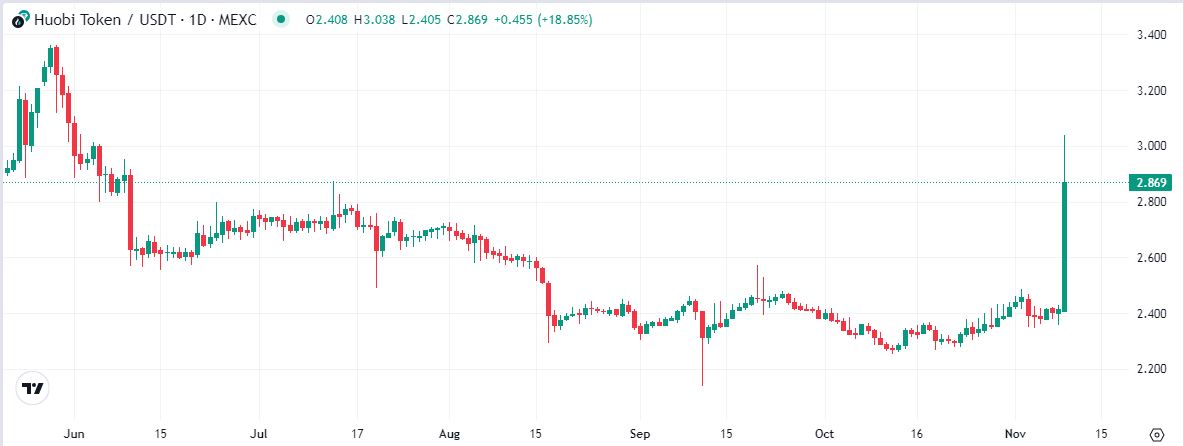- Huobi Token (HT) rises to a five-month high.
- Today’s surge has broken a 12-month downtrend.
- Daily trading volume for HT reaches $33.1 million, the highest in months.
The native cryptocurrency of crypto exchange HTX, Huobi Token (HT), has seen a remarkable surge in its price, reaching a five-month high of $3.035.
This sudden price increase comes on the heels of a period where HT experienced a persistent 12-month downtrend. In 2021, HT reached an all-time high of $34.80 but has struggled to regain that momentum.
 Huobi Token price chart
Huobi Token price chart
Record-breaking trading volume
The surge in Huobi Token’s price is accompanied by a substantial increase in its trading volume.
Daily trading volume for HT has hit $33,120,880, marking the highest volume trading day since February. This significant uptick in trading activity is a stark contrast to the previous week when trading volumes ranged between $2 million and $5 million, with HT trading around $2.40.
Most of this recent trading activity took place on the HTX exchange itself, with the HT/USDT trading pair reaching $26 million in volume over the past 24 hours.
The exact reasons behind this surge remain uncertain. Huobi advisor Justin Sun in an address to a leading media outlet has expressed his lack of knowledge regarding the cause.
However, this surge coincides with a broader sense of optimism in the altcoin market, likely driven by hopes for the approval of a spot Bitcoin (BTC) Exchange-Traded Fund (ETF) by the US Securities and Exchange Commission (SEC).
The post Huobi Token (HT) rises amidst increased trading volume appeared first on CoinJournal.
